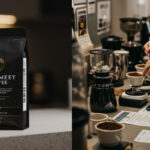
Brazilian Coffee Rituals You Didn’t Know About

Brazil is not just the largest producer of coffee in the world—it’s a country where coffee is deeply woven into the cultural fabric. While most people associate Brazilian coffee with strong black brews or sweet cafézinhos served in small cups, there are hidden rituals and regional traditions that even seasoned coffee lovers might not know about.
In this article, we’ll dive deep into fascinating Brazilian coffee customs that go beyond the basics—traditions that reflect community, warmth, and the Brazilian way of life.
Café da Tarde: The Sacred Afternoon Coffee Break
In Brazil, café da tarde (afternoon coffee) is more than a break—it’s a ritual of togetherness. Around 4 or 5 p.m., families gather for a relaxed spread that includes freshly brewed coffee, pão de queijo (cheese bread), bolo de fubá (cornmeal cake), and toasts with jam or butter. This moment is slow and social, resembling British tea time but with Brazilian flair. In many homes, especially in smaller towns, this is considered one of the most comforting parts of the day.
The Coador de Pano: A Legacy in a Cloth Filter
While modern coffee machines are common, many Brazilians still use the coador de pano, a reusable cloth coffee filter. It’s often seen hanging in kitchens, stained from years of use, and passed down through generations. This traditional brewing method produces a smoother and richer flavor, encourages mindful brewing, and adds a nostalgic taste of home. Its use is especially common in rural and older households, and there’s a growing movement to revive its use for sustainability and authenticity.
Café com Rapadura: Sweetening the Deal, Northeastern Style
In the Northeastern regions of Brazil, it’s common to sweeten coffee not with refined sugar, but with rapadura—a type of solid, unrefined cane sugar. Locals often drop a piece of rapadura into their cup or sip coffee alongside a bite of it. This custom connects deeply with Brazil’s colonial history and sugarcane plantations, producing a rich, earthy, molasses-like flavor that is both traditional and unique.
Farm Coffee Traditions: From Roasting to Sharing
In rural areas of Minas Gerais, Espírito Santo, and the interior of São Paulo, coffee culture is deeply tied to farm life. Coffee beans are often harvested, dried, roasted, and ground by hand. Families serve fresh batches to visitors as a sign of hospitality. Everyone gathers around the fogão a lenha (wood stove) to brew coffee and chat. On these farms, coffee is not just a beverage, but a symbol of tradition and friendship.
Coffee and Conversation: The Cafézinho Ritual
Perhaps the most iconic Brazilian coffee ritual is the cafézinho—a small, strong, and sweet cup served to guests, friends, or even clients. Always offered to visitors, refusing it might be considered rude. Typically brewed on the spot and served in tiny cups, often without milk, the cafézinho is more than a shot of caffeine. It’s a social bridge that fosters warmth and builds connections.
Mixing Coffee with Cachaça: A Bold Cultural Twist
In some southern regions and colder states like Rio Grande do Sul, there’s a bold twist: coffee with cachaça, known locally as café com pinga. It is usually served after meals, during festivals or cold mornings, and in celebratory rural events. The combination of strong coffee and the burning sensation of cachaça makes it a warming drink, often associated with older generations and traditional gatherings such as festas juninas.
Breakfast Pairings: Coffee and Cheese
In many Brazilian homes, especially in Minas Gerais, it’s common to pair coffee with savory cheese, not just bread or sweets. Cheeses like queijo minas complement the bold bitterness of coffee, enhancing both flavors. Some even dip cheese directly into their coffee—a surprisingly pleasant mix for adventurous palates. This combination is rooted in local agriculture and daily tradition.
Coffee During Celebrations: From Birthdays to Funerals
Coffee plays a role in every life stage in Brazil. At weddings and birthdays, it’s often served after meals or with desserts. During religious ceremonies, it is a staple at vigils and gatherings. At funerals, it helps mourners stay awake and feel comforted. Coffee in Brazil is more than a casual drink; it serves as a ceremonial connector, present in both joy and grief.
Coffee and Religion: Afro-Brazilian Offerings
In religions like Candomblé and Umbanda, coffee may be part of spiritual offerings or rituals of gratitude. It is used for honoring spirits, setting altars, or cleansing energy in specific rites. These practices show how coffee transcends its role as a daily beverage to become a part of spiritual expression and ritual in Brazilian culture.
Brazilian Coffee Around the World: Diaspora Traditions
Brazilians abroad bring their coffee rituals with them. In countries like Japan, the United States, and Portugal, Brazilian bakeries and cafes continue to serve authentic treats like pão de queijo alongside strong black coffee. These traditions help maintain cultural identity and introduce local communities to the rich coffee customs of Brazil.
The Evolution of Coffee Rituals in Modern Brazil
While many traditional rituals remain strong, the rise of specialty coffee shops in urban areas like São Paulo and Rio de Janeiro is changing the coffee scene. Young baristas are embracing global brewing trends—like pour-over and cold brew—while still honoring Brazilian beans. Coffee festivals, barista competitions, and artisanal roasting companies are gaining popularity, showcasing the country’s growing appreciation for quality and innovation in coffee.
How Coffee Supports the Brazilian Economy
Brazil is the world’s largest coffee exporter. The country’s economy relies heavily on the coffee industry, supporting millions of workers from rural farmers to urban baristas. The exportation of coffee not only generates income but also strengthens Brazil’s cultural soft power globally. Coffee tourism, particularly in the state of Minas Gerais, has also grown in recent years, drawing travelers eager to explore coffee plantations and taste brews at the source.
Health and Wellness Aspects of Brazilian Coffee
Brazilian coffee is typically consumed in moderate amounts, and it’s often part of a balanced lifestyle. Some recent studies suggest benefits of regular coffee consumption, such as improved mental alertness, mood enhancement, and even protection against certain chronic diseases. However, in Brazil, coffee is rarely about health claims—it’s more about comfort, routine, and pleasure.
Final Thoughts: More Than Just a Drink
Coffee in Brazil is not just about caffeine—it’s about connection, culture, and community. Whether shared at a rural farmhouse, during a spiritual ritual, or on a busy street corner, every cup tells a story. These rituals, passed down through generations, show that in Brazil, coffee is far more than a beverage. It is a symbol of life’s rhythms, a gesture of welcome, and a foundation of shared experience.
is an editor at Coffee With Finance and a true coffee enthusiast. He explores roasts, flavors, origins, and brewing methods, sharing stories that captivate both beginners and experts. Petter believes great coffee sparks meaningful moments—and that includes simple, jargon-free talks about personal finance. His content blends aroma, flavor, and insight, making each coffee break an inspiring and enriching experience.













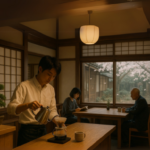

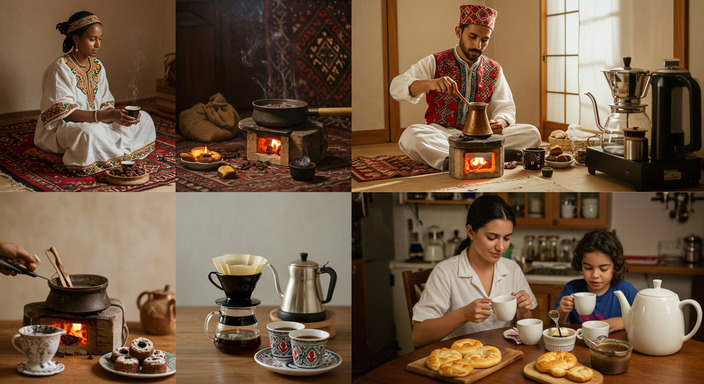
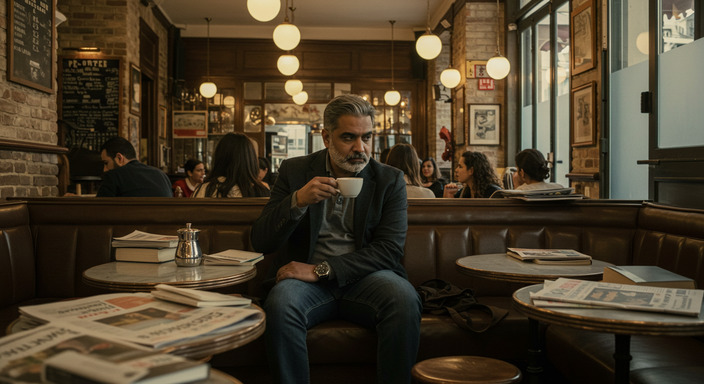
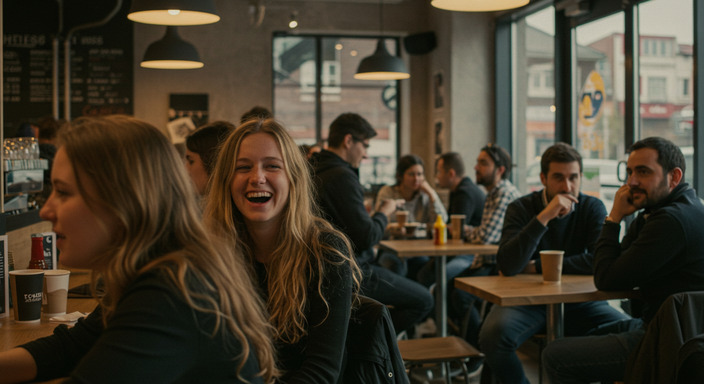
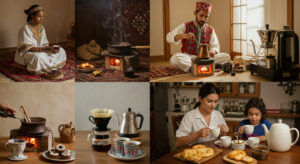









Post Comment